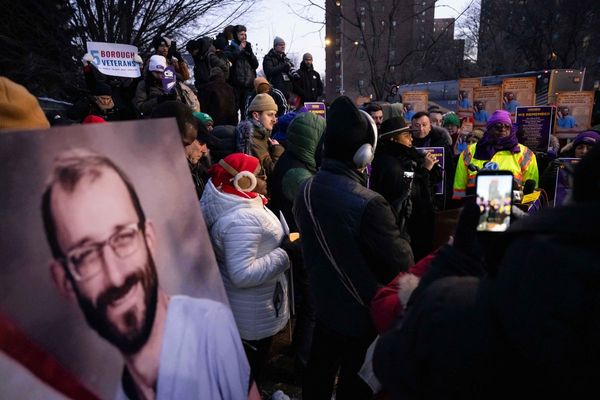A loss of confidence in the medical profession and mistrust of vaccines during the COVID pandemic are causing childhood immunisation rates to drop, a Gold Coast physician says.
The number of children who are fully immunised in line with the National Immunisation Program has fallen nationally since peaking in 2020.
Gold Coast Public Health physician Kate Alexander said the issue was being noticed in the medical community.
"What's really concerning to us is that over the past two years we've seen vaccination rates dropping," Dr Alexander said.
"That trend unfortunately is being seen across the state, the country, and internationally."
Dr Alexander said there were many reasons some parents did not immunise their children, but the effects of the coronavirus pandemic were still being felt by health authorities.
"We have seen data emerging and more research showing that there may be some degree of vaccine hesitancy or fatigue in the community after COVID," she said.
"Australians' confidence in the childhood vaccination program is lower now than it was before the pandemic."
Federal health department figures show the Gold Coast Primary Health Network recorded the country's second-lowest rates of fully vaccinated one and five-year-olds in 2022 at 90.54 and 91.72 per cent respectively.
The New South Wales North Coast Primary Health Network, which borders the Gold Coast, recorded the lowest rates, well below the national target of 95 per cent.
'Ask your grandparents'
Griffith University professor Nigel McMillan said people had lost confidence in the medical and scientific community due to the pandemic reigniting discussion about the value of vaccines.
"People have been exposed to a lot of misinformation and not much debate about vaccines and why we do it, what are the benefits and, if you're not going to do it, what are the risks," Professor McMillan said.
"Ask your grandparents who really experienced diseases like polio and they know what occurred.
"Talk to them and you'll get a very vivid idea of how bad it was before we had these vaccines."
Professor McMillan said falling vaccination rates and misinformation about vaccines were a dangerous combination.
He said a fraudulent study published about the MMR vaccine in the 1990s caused childhood vaccination rates in England and the United Kingdom to drop below 80 per cent.
"Many children died of preventable diseases because of that situation," Professor McMillan said.
'We trust them'
New parents Brogan and David Watling, who on Wednesday took their seven-week-old son Callaghan to receive his first immunisations outside of hospital, said they were acting on the advice of health professionals.
"They study for years and they know what's right and what's good for the kids and the community," Ms Watling said.
"It's a decision that I think sits with those who are qualified to make those kinds of decisions and we trust them."
Karla Chibvongodze said she felt vaccinating her son Stuart was important for the wider community.
"For us, I'd hate to see him get unwell due to something that was preventable," she said.
"But I've got a friend who's allergic to vaccines and it's so important for her and her daughter because people choosing not to get vaccinated could put them at risk."
Professor McMillan said anyone who was undecided about getting a vaccine for themselves or a child should seek advice from their GP or a medical professional.
"Please be informed," he said.
"Go to an independent source of information and be aware that on the internet there are lots of so-called independent sources of information that are just not accurate."







